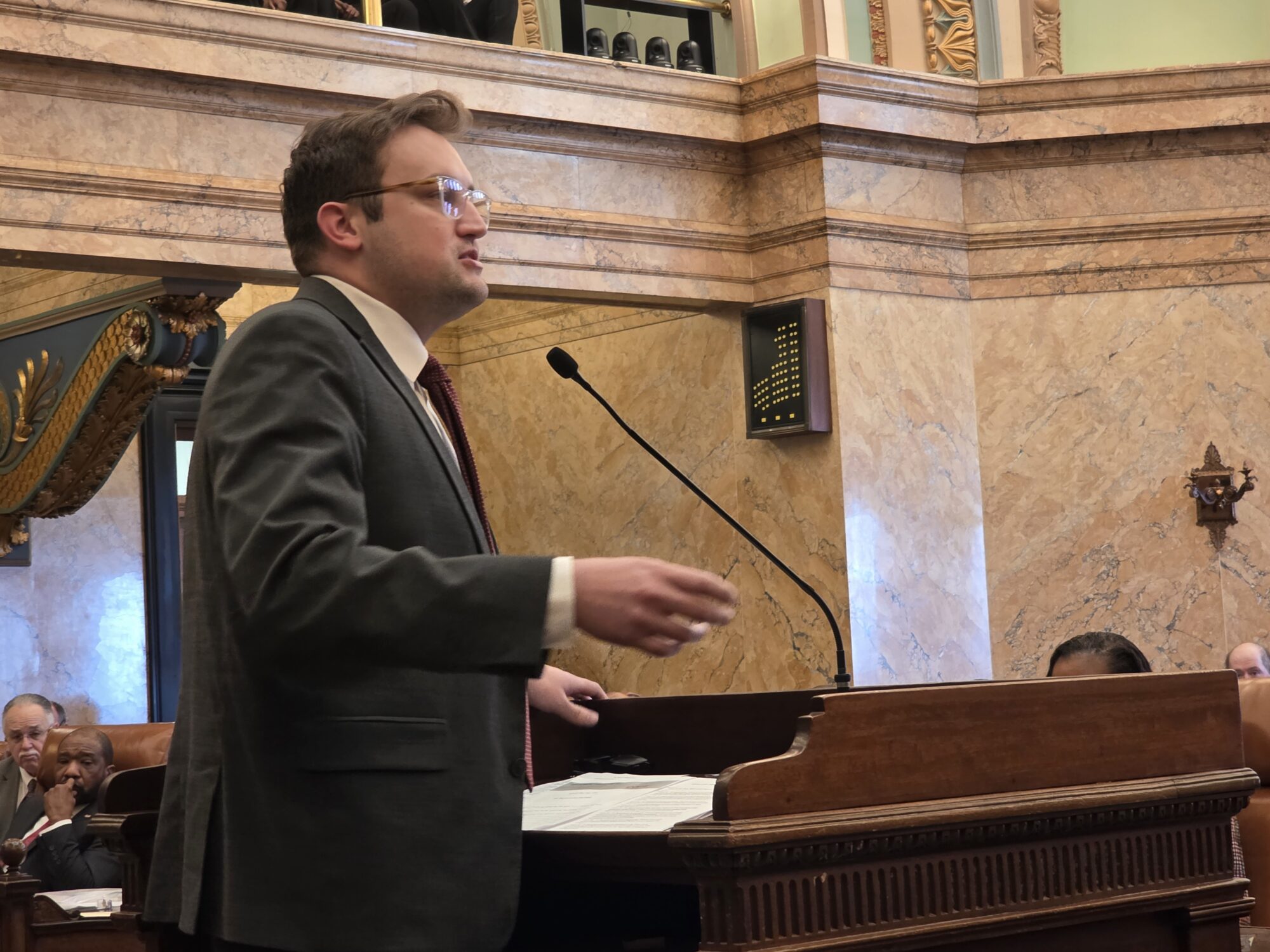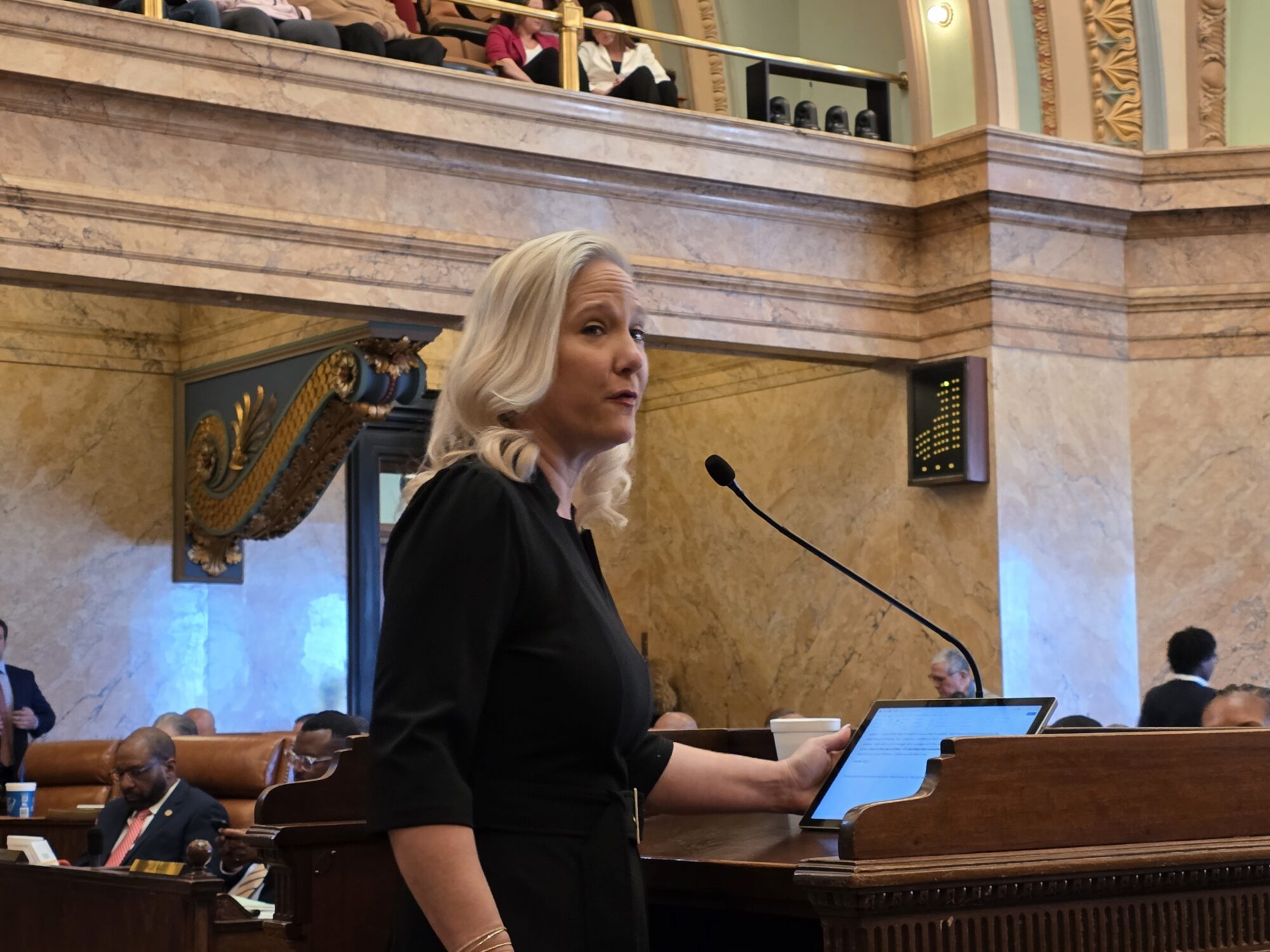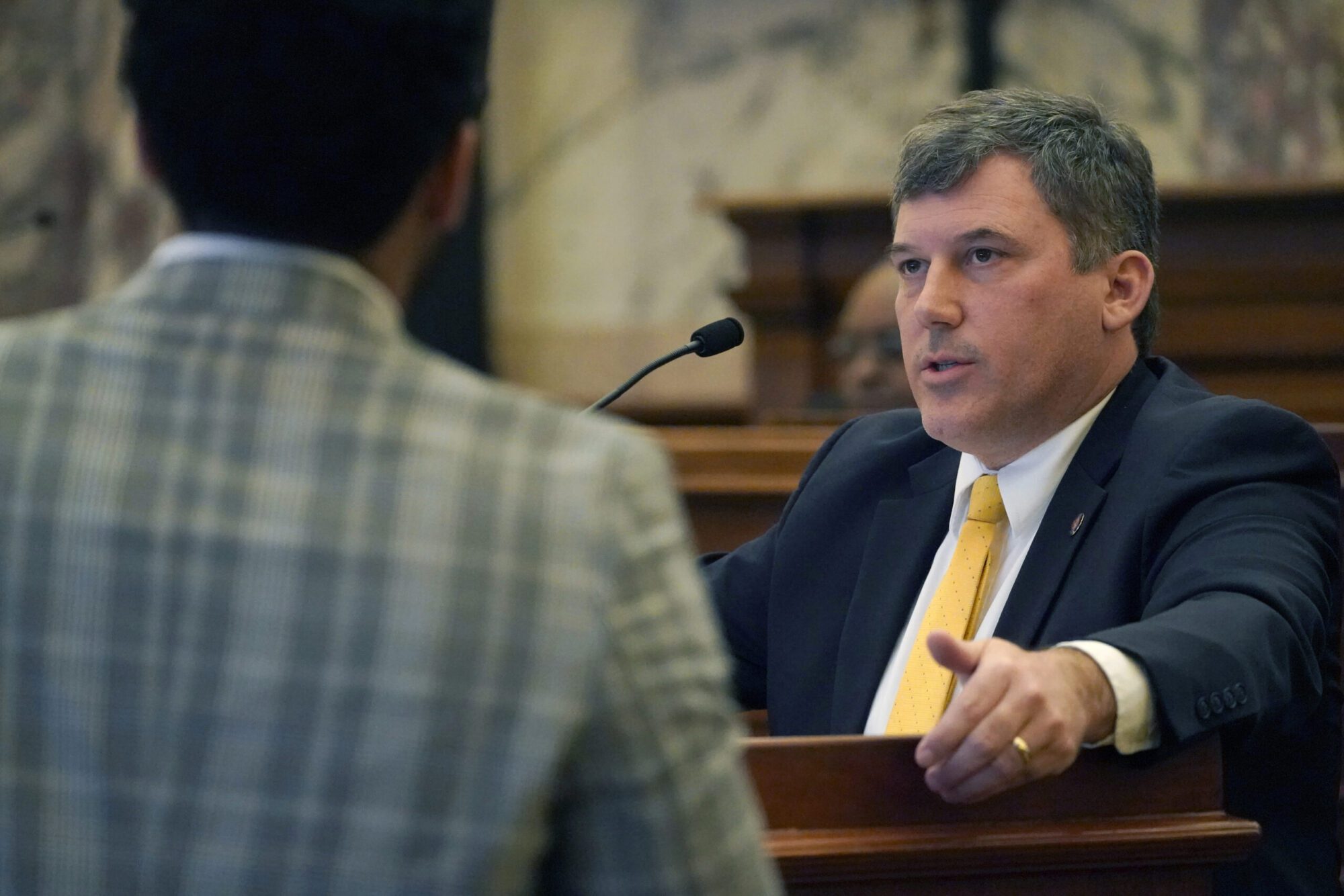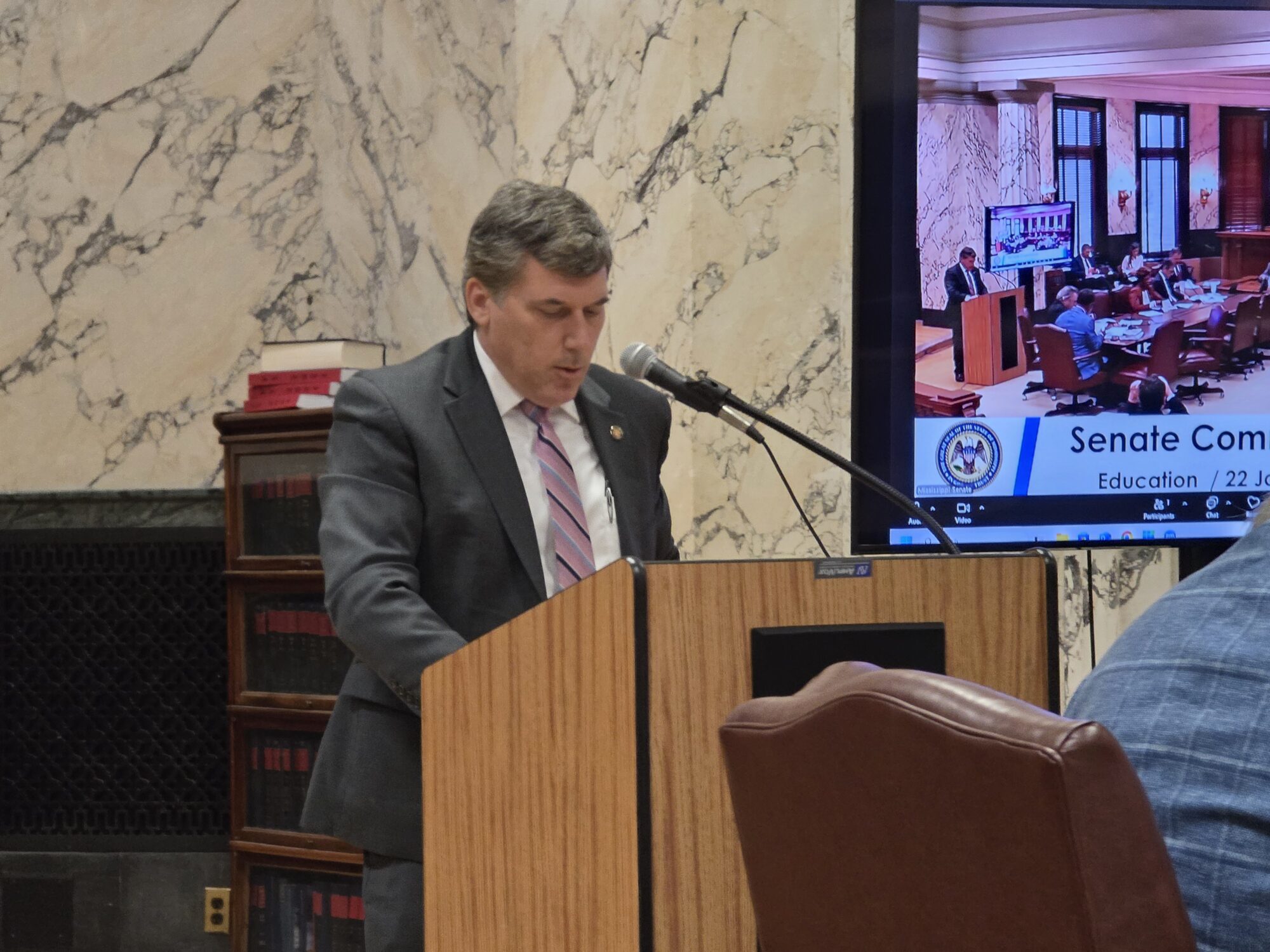
Mississippi State Auditor Shad White speaking at the Neshoba County Fair. (AP Photo/Rogelio V. Solis, File)
- “The difference in timing this year was to comply with state law and not get cross with the Auditor’s Office,” House Education chair says, noting the issuance of new procurement cards.
A report issued by the State Auditor’s Office this week shows that some state support for qualifying classrooms is going to be approved after the start of the school year.
A state lawmaker says the delay is due to new cards being issued.
The state support is part of the Mississippi Education Enhancement Fund, which will provide $748 to eligible teachers across the state this school year, totaling more than $27 million. That money is provided in the form of a procurement card that must be activated by the Mississippi Department of Education before it can be used to purchase classroom supplies.
Prior to 2022, activation of the cards was set by state law to take place prior to September 1. The Auditor report states that a change by the Legislature in 2022 moved that date to August 1. That date change, combined with modified school schedules, has resulted in about 75 percent of the cards now being activated after the start of the school year, leaving access to $17.8 million of those total funds unavailable until after August 1.
“Common sense says money spent in the classroom is what makes the biggest difference for students,” said State Auditor Shad White. “My office found that Mississippi spends a greater percentage of its K-12 budget on administrative costs than every other state in the South, which means, when we do spend money in the classroom, it needs to get to the teachers on time.”
White’s report says that if the funds are not available by the start of school, it forces teachers to use personal funds without a path for reimbursement to ensure the classroom is equipped, potentially leading to starting the school year without the necessary supplies.
The report suggests MDE make the funds available by July 15 to provide ample time for teachers to prepare the classroom.
House Education Committee Chairman Rob Roberson (R) said this year’s August 1 timeline is due to new cards being issued.
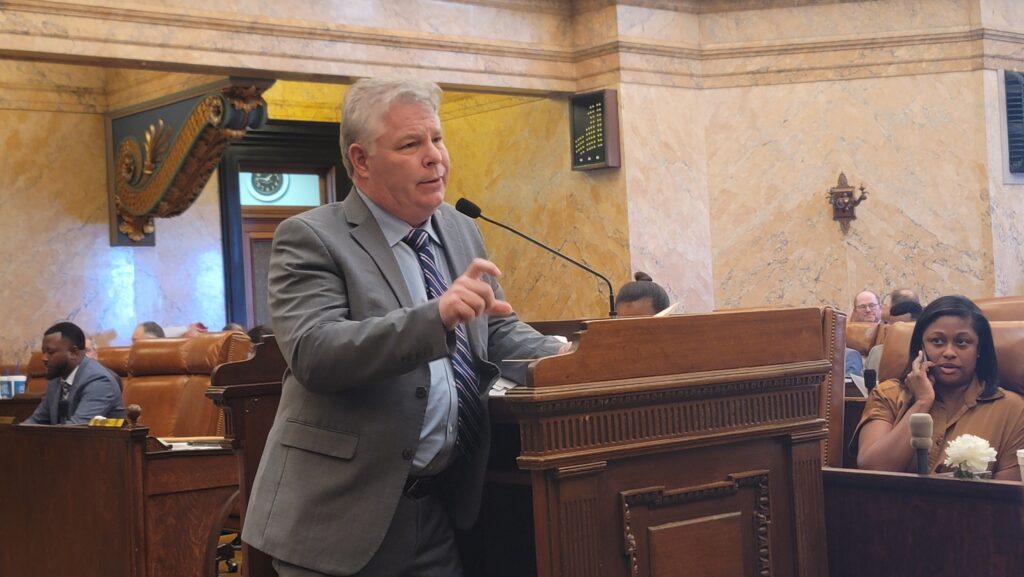
“MDE typically issues EEF funds to teachers in July once funds have been appropriated,” Roberson told Magnolia Tribune Tuesday.
New cards were mailed directly to districts and should have been received on July 15. However, there is a wait period to ensure eligibility and that the cards were received before they are activated on August 1.
“The new cards are designed for reuse, which will allow districts to request activation as early as July 1 each year,” Roberson described. “MDE provided the [Office of the State Auditor] complete context about the transition to new EEF cards in FY26 and the benefits of the new cards for teachers.”
Roberson added that the House and Senate are working to ensure those state dollars reach teachers directly so they can positively impact the classroom.
“The difference in timing this year was to comply with state law and not get cross with the Auditor’s Office,” Roberson added. “We, as the governing authority, are always looking for ways to do a better job and appreciate feedback from all parties. We certainly need to continue to focus efforts on our education system to make it as effective and efficient as possible. I think that is the message the Auditor’s Office is sending and we could not agree more.”
